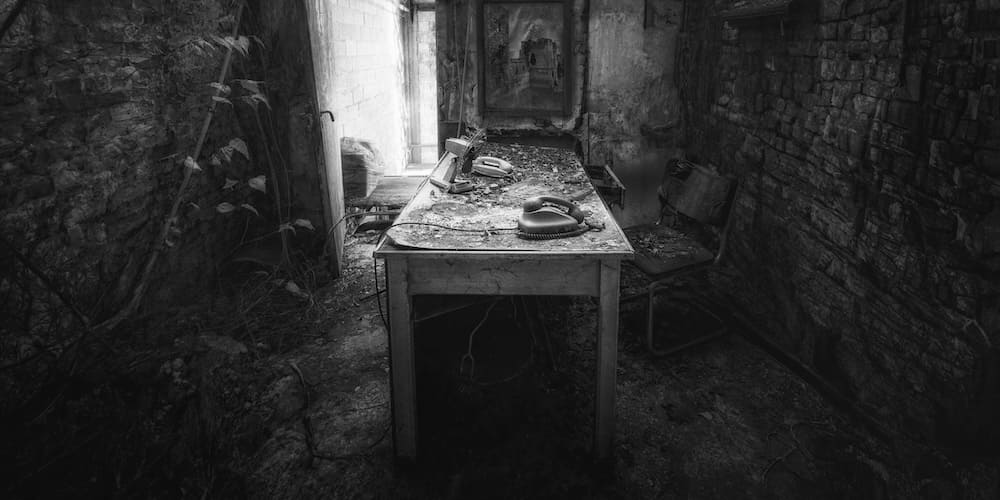We no longer worship gods. We worship growth. Not the organic kind, not the slow, rooted evolution that builds substance. But the restless, relentless kind. The kind that fills every silence, measures every second, and demands every ounce of attention.
And we call it progress.
Progress once meant forward motion. An improvement of life, of thought, of collective experience. Now it simply means movement. Any movement. The faster, the better.
We’ve confused acceleration for evolution. Volume for value. Output for meaning.
And somewhere along the line, busyness became a moral virtue.
We used to pray for blessings. Now we code for upgrades. We used to kneel before gods. Now we kneel before deadlines. The rituals have changed, but the devotion remains. We no longer whisper in temples, we type in dashboards. We track our prayers in metrics. Our new religion rewards consistency, not contemplation.
The irony? We’re still chasing transcendence. We just call it productivity now.
Everything today must be optimized. Our work. Our bodies. Our sleep. Even our rest must be efficient.
Apps tell us how well we relax. Devices count our steps toward wellness. And every moment is either an achievement or a missed opportunity to have one.
This is not living. This is performance. And performance, repeated long enough, becomes belief.
For ten years, I wore an Apple Watch. It became my silent priest. Always reminding, never questioning. It told me when to stand, when to breathe, when to rest and when to burn. And like a faithful disciple, I obeyed.
Every hour, it nudged me: Stand for one minute.
And I did. Proud to complete the circle, to close the ring, to be good. But what I didn’t notice was how my mind had accepted that one minute as enough because the device told me so. It never occurred to me that I could stand longer, walk more or simply move because my body asked me to, not because my watch commanded it.
It told me to breathe for one minute every few hours. And I did that too, faithfully & obediently convinced I was practicing calm. I’d breathe deeply for sixty seconds, then return to work, to stress, to noise, comforted by the illusion that I had done enough.
The watch didn’t know my anxiety. It didn’t know my sleepless nights. It didn’t see the weight I gained while still “hitting my goals.” But it congratulated me every evening for closing my rings, for staying consistent, for being “healthy.”
That’s the seduction of progress. It gives you the pleasure of accomplishment without the substance of change.
Earlier this year, I stopped wearing all of it. The watch. The tracker. The quiet voice that measured my worth in metrics. I no longer needed a device to tell me when I was alive. My own actions, I realized, determine the quality of my life, not the approval of a screen.
I’ve decided not to upgrade my phone either. I’ve had it since 2018. It works fine. It might for a few more years. And that’s good enough. Because enough is something progress forgot to teach us.
In nature, everything matures, then rests. Nothing blooms forever. Nothing grows without pause.
Only humans, in our obsession with improvement, reject stillness as regression. We treat quiet like a malfunction. We treat rest like failure. We are terrified of enough.
Progress has become a god that cannot die. And we have become its nervous worshippers.
But progress without reflection is chaos in motion. It gives us more, but never tells us why. We keep improving tools that don’t solve the real problems. We keep moving faster toward the same wall.
When you strip away the language of innovation, what remains is fear. The fear of stillness, the fear of irrelevance, the fear of being forgotten by the next update. Perhaps this is the true test of faith in our time:
Can we stop moving without feeling lost?
Maybe progress was never the problem. Maybe the problem was how easily we turned it into worship.
We made speed sacred. We made silence shameful. And in doing so, we lost the one thing progress was supposed to give us: clarity.
Real progress has always been quiet. It happens when no one is watching. It doesn’t trend. It doesn’t update. It understands that not everything needs to grow. Some things just need to be.
Progress was never meant to be a god. But we built temples anyway. And we filled them with our exhaustion.
